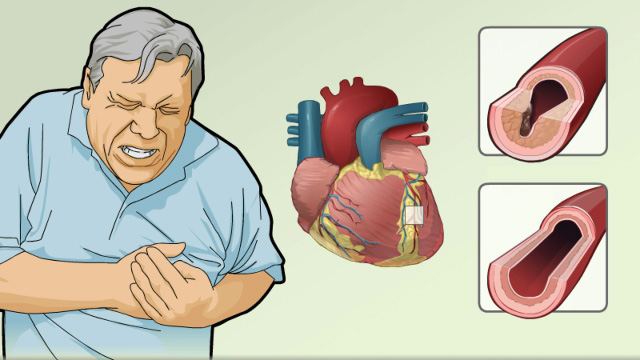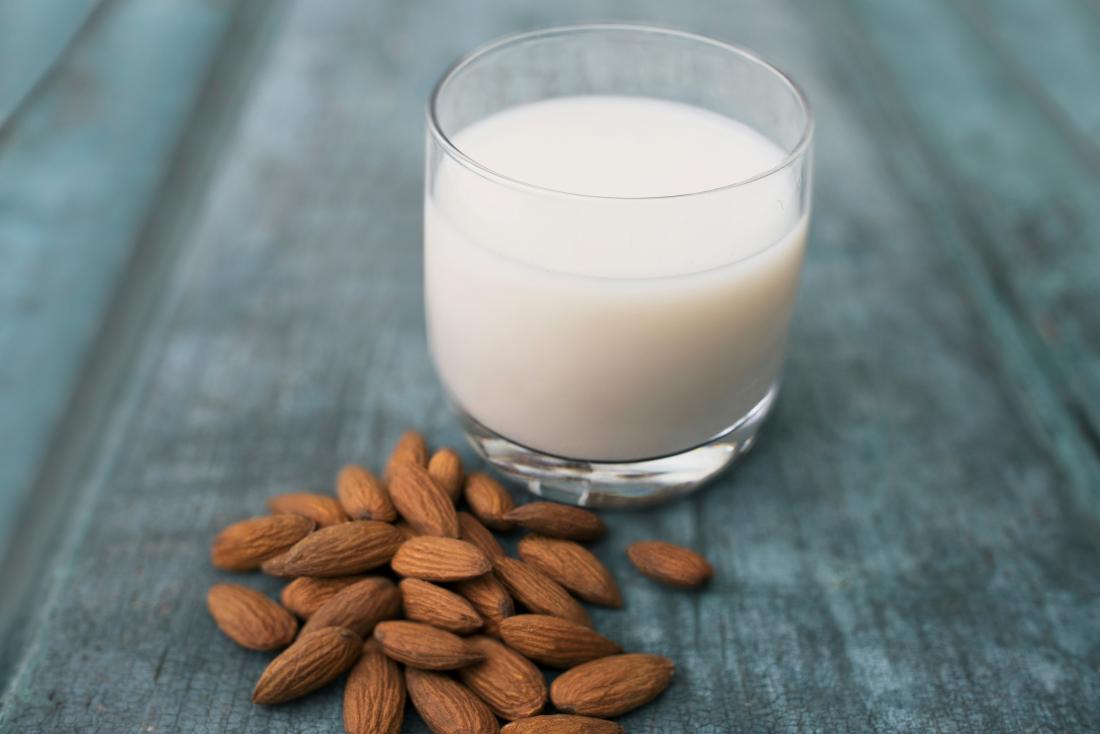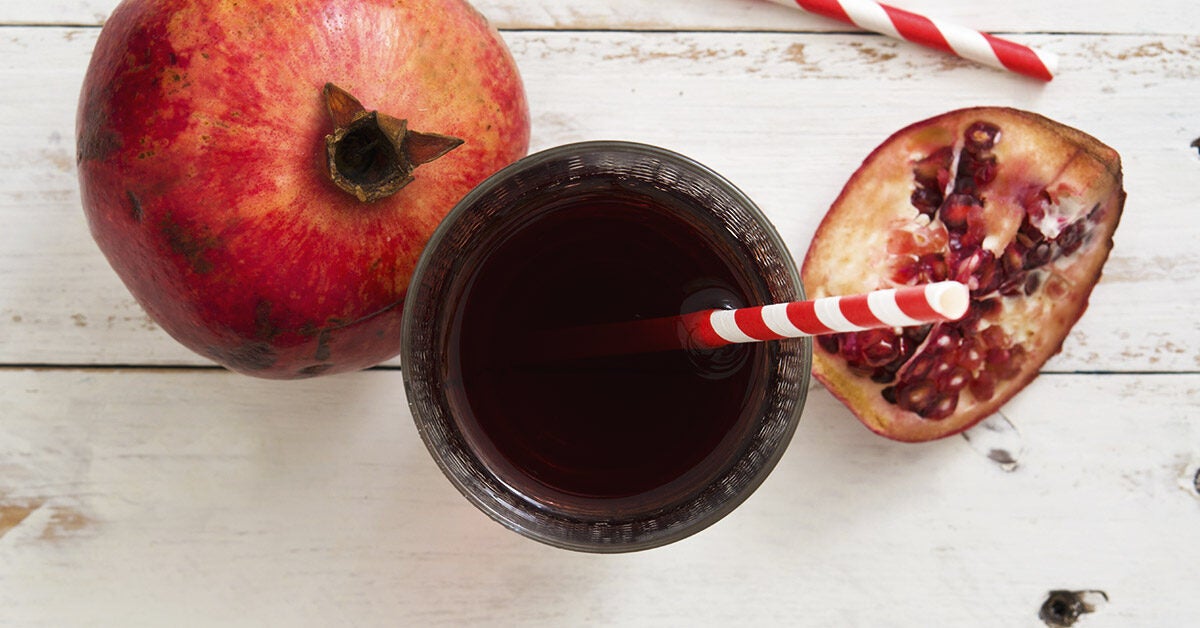4 Ways to Treat Heart Pain Right Away
Natural Remedies for Heart Pains
Home treatments for chest discomfort brought on by intestinal issues or muscle tension include:
1. Almonds
When heart pain occurs after eating, acid reflux or gastroesophageal reflux disease (GERD) may be to blame. Both conditions may cause intense chest pain. Many people claim that eating a handful of almonds or drinking almond milk when heartburn strikes ease symptoms.
The evidence is anecdotal and there’s not enough scientific data to support this claim. Almonds are an alkaline food and in theory, they may help to soothe and neutralize the acid in the esophagus.
On the other hand, almonds are high in fat. For some people, fat triggers acid reflux. Fatty foods may cause the lower esophageal sphincter to relax and allow acid to flow backward into the esophagus.
2. Apple cider vinegar
Drinking a tablespoon of apple cider vinegar with a glass of water before meals or when heart pain strikes is another home remedy for acid reflux. There’s little scientific evidence to show that apple cider vinegar eases heartburn. Still, many people swear it works.
Some people experience acid reflux because their stomach doesn’t produce enough acid. In this case, apple cider vinegar may help by increasing the amount of acid in the stomach. The compound that gives apple cider vinegar its tang is acetic acid. It may help break down food and support digestion.
Apple cider vinegar doesn’t cause side effects in most people. However, it may thin your blood and should be used with caution if you take blood thinners.
3. Drinking a hot drink
Gas is a common cause of chest pain. A hot or warm drink may help rev up your digestive system and ease gas and bloating. Hot hibiscus tea, in particular, supports digestion and heart health. Research shows hibiscus helps lower blood pressure and reduces cholesterol and triglycerides. Hibiscus is generally recognized as safe to consume.
4. Apply a cold pack
Heart pain is sometimes caused by chest muscle strain. Weightlifting, a fall, or even carrying a child or a heavy laundry basket may all be culprits. Costochondritis, which is an inflammation of the chest wall, is often the source of severe chest pain. Applying a cold pack several times a day to the affected area may help reduce inflammation and ease pain.
When to call emergency service
If you experience persistent chest pain with or without other symptoms — such as nausea, shortness of breath, and sweating — call emergency services immediately. You may be having a heart attack.
Heart attack symptoms may escalate quickly. You should wait for an ambulance to arrive or, in some situations, meet you en route. Emergency services personnel are trained and equipped to handle worsening medical situations that may happen en route to the hospital.
Home remedies to promote overall heart health
Some home remedies don’t bring rapid relief of heart pain but work to improve your heart health over the long term. Lifestyle factors such as a healthy diet rich in fruits and vegetables, regular exercise, and not smoking are well-known remedies for improving heart health.
Several supplements can also help keep your heart healthy and strong. The quality of supplements varies, so only buy them from reputable manufacturers. Follow the dosage instructions on the bottle to limit your risk of side effects. Supplements include the following:
Omega-3 fatty acids
Omega-3 fatty acids may help:
- reduce your risk of deadly heart arrhythmias
- reduce your triglyceride levels
- reduce the progression of atherosclerosis
- lower your blood pressure.
Pomegranate juice
Adding pomegranate juice to your diet may be beneficial to your heart. Pomegranates are high in antioxidants, which can help keep cholesterol in check and keep your arteries healthy.
According to the Cleveland Clinic, research shows pomegranate juice may help decrease “bad” cholesterol (LDL) in your blood. It may also help prevent or reduce plaque build-up in your arteries, which can cause reduced blood flow to your heart.
At least one has found that drinking pomegranate juice helps lower blood pressure.
Capsaicin
Capsaicin is the chemical responsible for giving peppers their spicy kick.
According to a 2015 study, capsaicin may have a wide range of benefits that help protect the heart by:
- increasing exercise time in people with angina (when applied topically)
- slowing the development of atherosclerosis
- reducing the risk of metabolic syndrome
- lowering blood pressure
- controlling blood sugar
- reducing the risk of heart muscle thickening
- supporting weight loss
In the meantime, current research suggests taking around 20 milligrams (mg) of capsaicin capsules daily and supplementing your diet with spicy foods and hot sauce. Keep in mind that for some people, eating spicy foods may cause digestive problems.
Garlic
Both fresh garlic and garlic supplements have been used for years to battle heart problems. Research has shown garlic extract may help prevent plaque build-up in the arteries and even reverse heart disease.
The downside? Like fresh garlic, some garlic supplements leave your breath smelling less than fresh. If you can’t get past the smell, look for odor-free garlic capsules.
CoQ10
Coenzyme Q10 (CoQ10) is a substance your body makes naturally and is critical to heart health. As you age, your body makes less CoQ10. Low levels of CoQ10 in the body have been linked to chronic heart failure. CoQ10 may also help lower blood pressure and prevent exercise-induced chest pain.
Ginger
Spicy ginger is thought to have anti-inflammatory and antioxidant abilities.
It may help:
- lower blood pressure
- reduce cholesterol
- reduce triglycerides
- prevent blood clotting
Ginger is known for soothing your tummy and reducing gas. It’s also a natural blood thinner, so avoid using it if you take prescription blood thinners.
Curcumin
According to a 2013 review of clinical trials, curcumin, the compound that gives turmeric its golden color, may help reduce inflammation that leads to heart disease. It may also reduce total cholesterol and bad cholesterol in the body while increasing good cholesterol. This can help prevent atherosclerosis.
Alfalfa
Alfalfa sprouts aren’t well-studied for heart health. Still, many people claim alfalfa is a magic bullet for lowering cholesterol. One study found the saponins in alfalfa extract reduced cholesterol and prevented the leaking of liver enzymes in diabetic rats.
Holy basil
Holy basil is a popular Ayurvedic herb. It’s mainly used to battle stress and to prevent stress-related illnesses. It’s also used to reduce cholesterol. Chronic stress may increase cholesterol and blood pressure. Stress may also increase the risk of heart disease if you cope with stress in unhealthy ways, such as overeating or smoking.
Editor's note
Anyone occasionally feels pain in the heart area. Heart pain typically results from digestive issues or overworked muscles, although it can occasionally be brought on by a more serious ailment.
You should always treat heart problems seriously because it can be difficult to tell the difference between a heart attack, angina, and poor gas.
Give home treatments a shot if you are aware of your personal pain threshold and your doctor has ruled out any probable cardiac issues.
While some natural therapies lack adequate research, the majority are safe and unlikely to have any negative side effects. Pain relief and heart health may be maintained by combining natural therapies with a heart-healthy lifestyle.












